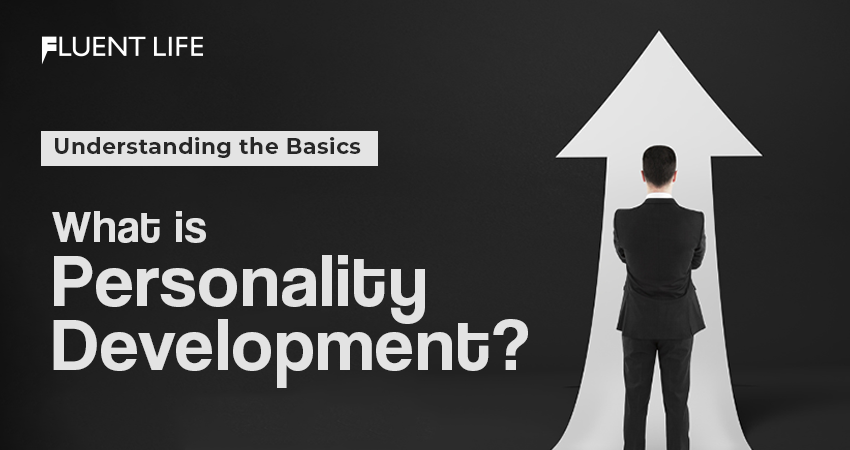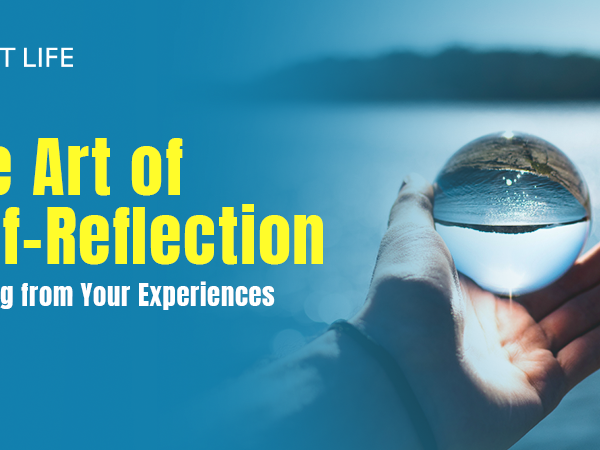Unveiling the essence: What is Personality Development? It is essential for personal growth and success. It’s about enhancing one’s characteristics, attitudes, and behaviors to be better. This involves self-realization, understanding strengths and weaknesses, improving communication, and forming positive relationships.
Developing personality has many benefits. People with strong personalities are more likely to achieve in their career, make meaningful connections, and handle challenges. By understanding ourselves and always striving to improve, we can unlock our true potential.
Self-awareness is important for personality development. It’s about recognizing our feelings, values, and thoughts. Being aware of our strengths and weaknesses helps us use them to our benefit and work on areas to improve. This leads to personal growth and knowing ourselves better.
Effective communication is another key element in personality development. Good communication helps us express ourselves and build strong relationships with others. By actively listening and expressing our ideas clearly, we can connect to people in meaningful ways, creating trust and cooperation.
Confidence is also necessary for personality development. It allows us to take on challenges without fear or doubt. It encourages us to believe in ourselves and our abilities, paving the way for success.
To further enhance personality development, it is essential to have a growth mindset – an outlook that embraces learning from failures and continually looks for opportunities to improve.
Understanding the Definition of Personality
Personality development is a complex concept. It means the growth and polishing of character traits that are unique to each person. These personal traits are shaped over time through interactions with others and life experiences.
Personality is more than just looks. It’s about inner thoughts, emotions, and behaviors. Genetics, environment, and past experiences all play a role. It is a journey that never stops.
People can change their personalities by focusing on self-improvement. Character traits such as confidence, resilience, empathy, and adaptability can be developed.
Investing in personality development has many advantages. It helps people communicate effectively, build relationships, and handle difficulties. People with developed personalities tend to do well in all areas of life.
To begin the journey of personality development, one must be ready for change and take action. Seeking feedback from others, doing introspection and self-reflection, setting goals, getting guidance, and cultivating good habits are all steps to take.
Also Read: Master the Art of Small Talk: Engaging Conversation Tips
Factors That Influence Personality Development
It is complex, and is influenced by various elements. Genetics, environment, experiences during early childhood, and social interactions all shape an individual’s unique traits. Furthermore, personal interests and aspirations play a vital role.
To illustrate this, I once heard about identical twins who were separated at birth. Despite being raised in different environments, they had strikingly similar personalities when they reunited later in life. This shows the intricate relationship between genes and environment in forming our personalities.
By analyzing these factors, we can gain insight into what makes us unique and complex individuals.
Also Read: Conversational Etiquette Tips: Do’s and Don’ts in English
Importance of Personality Development
Personality development is crucial for forming an individual’s character and behavior. It helps to sharpen communication skills, boost self-confidence, and develop a positive view on life. A strong personality is key for personal and professional success.
It allows people to express their thoughts and ideas clearly. It also helps overcome shyness or social anxiety, letting them connect with others confidently. Plus, it aids in creating strong personal and professional relationships.
It equips people with the necessary skills to adjust to new environments and challenges. It sharpens problem-solving abilities, decision-making skills, and interpersonal relationships. These are highly valued in the workplace as they support effective teamwork and leadership.
To develop one’s personality, focus on continuous self-improvement. Set clear goals and work towards achieving them. Developing communication skills through active listening, effective speaking, and writing can boost one’s personality.
Cultivating a positive attitude towards life is essential for personality development. It helps individuals face challenges with optimism and resilience, while maintaining a growth mindset. Participate in activities that promote personal growth, such as reading books, attending workshops or seminars.
Additionally, join extracurricular activities or volunteer opportunities. This broadens horizons and encourages personal growth.
In conclusion, it is important for individual growth as well as building successful relationships. Focus on continuous self-improvement, cultivate a positive attitude, and participate in diverse experiences. Embrace the journey of personality development for a fulfilling life full of meaningful connections and achievements.
Also Read: How to Avoid Common Mistakes in English Conversations
Steps for Personality Development
Personality development is a complex process, with many steps and strategies to help you enhance your persona. Follow these key steps to successful personality development:
- Self-reflection – think about your values, goals, strengths and weaknesses. This will help you understand yourself better and build areas of improvement.
- Set clear objectives – identify your personal and professional goals that match your values. Setting achievable targets tracks your progress and keeps you motivated.
- Continuous learning – engage in activities that broaden your horizons. Read books, attend seminars, take up hobbies or enroll in courses to expand your skills and enhance your intellectual abilities.
- Improve communication skills – practice verbal and non-verbal communication, listen actively, seek feedback and learn effective techniques such as assertiveness and empathy.
- Embrace personal development opportunities – take on leadership roles, public speaking engagements or team-building exercises which challenge you to step out of your comfort zone. This helps you grow, and demonstrates your willingness to learn and adapt.
Remember, it is an ongoing process that requires consistent effort and self-evaluation. Follow these steps, adapt them to your needs and watch the positive impact they have on your journey. Self-improvement is a lifelong pursuit that can boost your well-being and success.
Also Read: The Role of Humor in Engaging English Conversations
Challenges and Obstacles in Personality Development
Challenges and obstacles in personality development are commonplace. These can impede growth of an individual’s character, making it key to identify and address them.
- Self-doubt: An obstacle is self-doubt. This can prevent someone from recognizing their strengths and abilities, leading to low self-esteem and a lack of confidence.
- Environmental influences: Where we grow up shapes our personalities. Negative or abusive environments can block personal development, as individuals may find it hard to develop healthy coping mechanisms or overcome traumatic experiences.
- Limited mindset: A challenge is having a limited mindset. People with fixed mindsets think their abilities are predetermined and unchangeable, blocking personal growth. Growth mindsets, however, allow for continuous learning and development.
- Fear of failure: Fear of failure is a roadblock in personality development. Individuals afraid of mistakes may avoid risks or trying new experiences, preventing personal growth opportunities.
It’s important to remember that personality development is an ongoing process. By facing these challenges and striving to overcome them, individuals can reach their full potential.
A study in the Journal of Personality looked at environmental factors on personality development among adolescents. It showed that positive environments have considerable influence on healthier personalities (source: Journal of Personality).
Also Read: Top 100 Commonly Used A to Z Phrasal Verbs for English Fluency
Conclusion: The Journey of Personality Development
Personality development is a life-long journey. It’s unique to each individual, as their own mix of genetics, environment, and experiences shape it. It starts from birth and genetics play a major part. But, the environment we live in also shapes us. The people we meet, our experiences, and the cultural norms we learn are all part of it.
These challenges and opportunities help us learn more about ourselves and refine our personalities. We use our coping mechanisms, values, beliefs, and attitudes to shape who we are.
Development isn’t linear. It can involve rapid growth or periods of stability. It also focuses on improving weaknesses, not just strengths.
A study by Roberts et al. (2007) found that personality continues to develop in adulthood. Traits like agreeableness and conscientiousness tend to increase with age. Others may stay the same or decline slightly. Know More – The Fluent Life
Frequently Asked Questions
1. What is personality development?
A. It refers to the process of enhancing and improving an individual’s thoughts, behaviors, and attitudes to create a well-rounded and attractive personality.
2. Why is personality development important?
A. Personality development is important because it helps in building confidence, improving communication skills, fostering positive relationships, and achieving personal and professional success.
3. How can I develop my personality?
A. You can develop your personality by practicing self-awareness, setting goals, improving communication skills, learning new things, seeking feedback, and adopting a positive mindset.
4. Can personality development change over time?
A. Yes, personality development can change over time. It is a lifelong process, and individuals can work on improving various aspects of their personality at any stage of life.
5. Are there any specific techniques or courses for personality development?
A. Yes, there are various techniques and courses available for personality development, such as public speaking classes, leadership workshops, self-help books, and professional coaching sessions.
6. How long does it take to see results in personality development?
A. The time required to see results in personality development varies from person to person. It depends on factors like motivation, effort, consistency, and the specific areas of improvement. Generally, consistent effort over a period of time can lead to noticeable changes.






